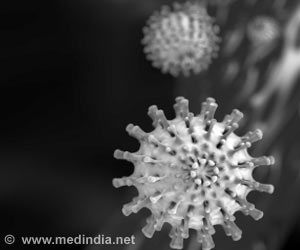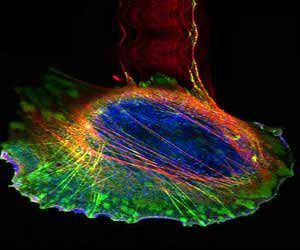By implementing a strategy for HTS and follow-up characterization of active compounds, authors identified compounds with clinically important anti-bacterial activity.
For activity against an antibiotic-resistant strain of Klebsiella pneumoniae bacteria, researchers rapidly screened more than 11,000 bioactive molecules and identified multiple compounds with potent antimicrobial activity.
These active compounds included two existing drugs, azidothymidine, an antiviral used to treat HIV infection, and spectinomycin, an antibacterial agent used to treat gonorrhea, as reported in
ASSAY and Drug Development Technologies, a peer-reviewed journal from Mary Ann Liebert, Inc., publishers. The article is available free on the
ASSAY and Drug Development Technologies website until June 11, 2016.
Kenneth Smith and James Kirby, Beth Israel Deaconess Medical Center, Boston, MA, describe a high-throughput screening (HTS) assay they developed that is capable of detecting either the direct antibiotic activity of small molecules or their ability to act as adjunctive treatments by synergistically restoring the effectiveness of an antibiotic drug to which bacteria have developed resistance.
TOP INSIGHT
By implementing a strategy for high-throughput screening (HTS) and follow-up characterization of active compounds, authors identified compounds with clinically important anti-bacterial activity.
The article "Validation of a High-Throughput Screening Assay for Identification of Adjunctive and Directly Acting Antimicrobials Targeting Carbapenem-Resistant Enterobacteriaceae" describes how HTS of large compound libraries could lead to the identification of more effective therapies against intractable and potentially life-threatening infections.
"The paper by Smith and Kirby exemplifies the importance of a carefully designed strategy for HTS and follow-up characterization of active compounds," says
ASSAY and Drug Development Technologies Editor-in-Chief Andrew D. Napper, PhD, Associate Director, Nemours Center for Childhood Cancer Research, Head - High Throughput Screening/Drug Discovery Laboratory, and Senior Research Scientist, Nemours/A.I. duPont Hospital for Children (Wilmington, DE). "By implementing this strategy, these authors efficiently and unequivocally identified compounds with clinically important anti-bacterial activity."
Source-Eurekalert

 MEDINDIA
MEDINDIA




 Email
Email







